Time to Love and a Time to Die, A (1958)
“Remember, my boy: it’s easier to die than to live!”
|
Synopsis: |
|
Genres, Themes, Actors, and Directors:
Review: A Time to Love and a Time to Die (the title is succinct and direct) is essentially a wartime romance: … taking place within Germany’s deadly final days during World War II, when soldiers felt defeated by the inevitability of their country’s loss, and unsure what moves to make next — other than simply continuing to follow instructions and seek joy where they could find it. Upon arriving in his hometown, Gavin accepts an invitation from a former classmate (Thayer David) — now a high-level Nazi — to refresh himself in David’s palatial home: Despite his discomfort, he realizes that maintaining appearances and not rocking the boat too much will ultimately help him in his quest to locate both his own missing parents, and Pulver’s father — who’s been sent to a concentration camp. Meanwhile, he uses connections and a spiffy suit from a high-class lieutenant (Keenan Wynn): … to gain entrance to a secret nightclub, where he’s able to offer Pulver a glorious night on the town: — at least until the club is directly bombed and they must flee for their lives. Other than Gavin and Pulver taking a chance on love and happiness in the midst of chaos and uncertainty: … the storyline centers on Gavin’s gradually shifting sense of moral responsibility; to his credit, Sirk doesn’t overplay this theme, instead allowing it to unfold somewhat naturally (with a surprise ending). While this isn’t must-see viewing for all film fanatics, Sirk fans will surely want to check it out. Redeeming Qualities and Moments: Must See? Links: |
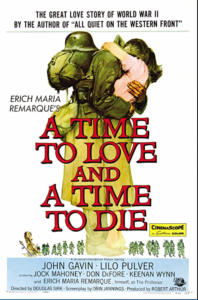
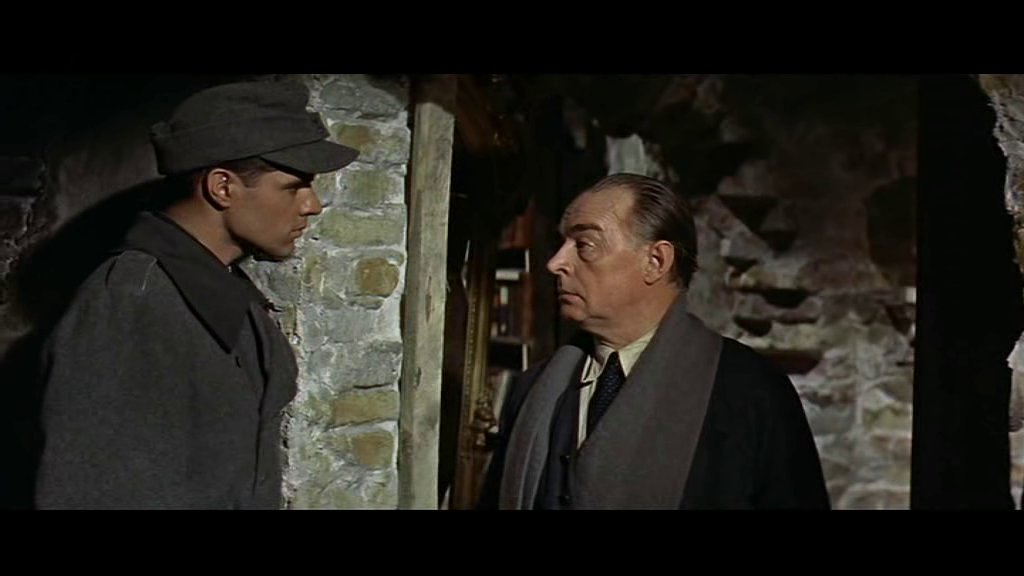
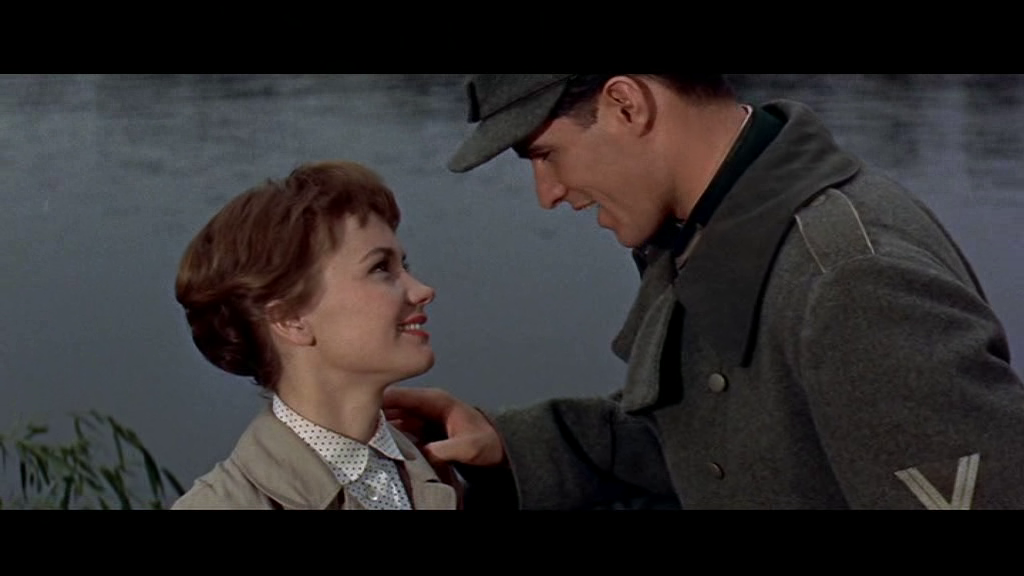


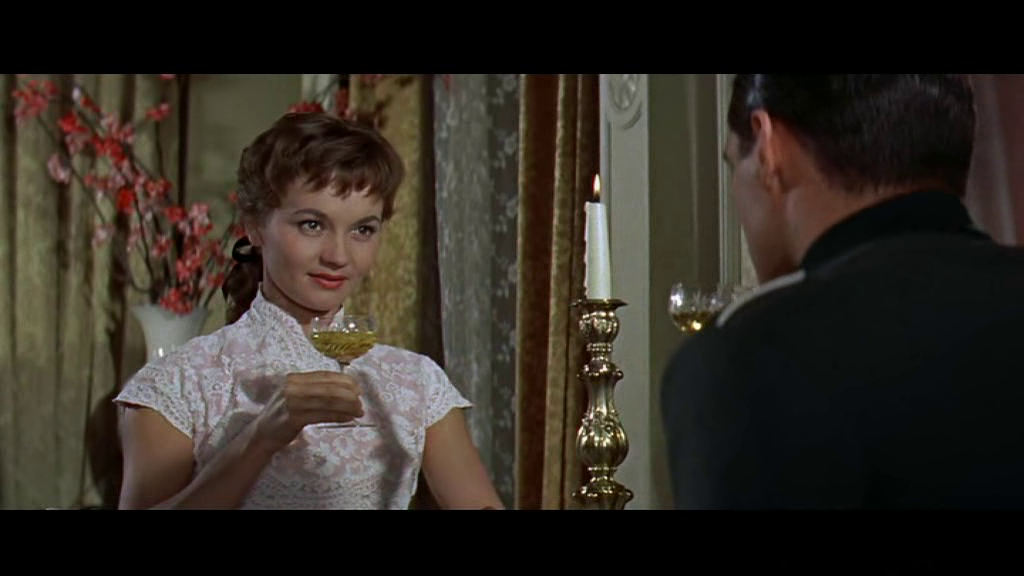

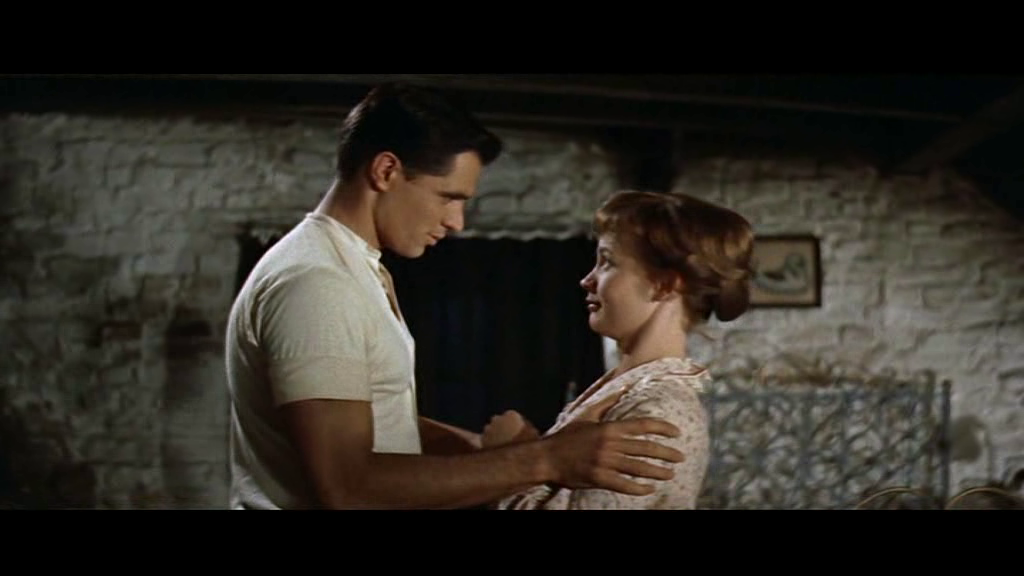
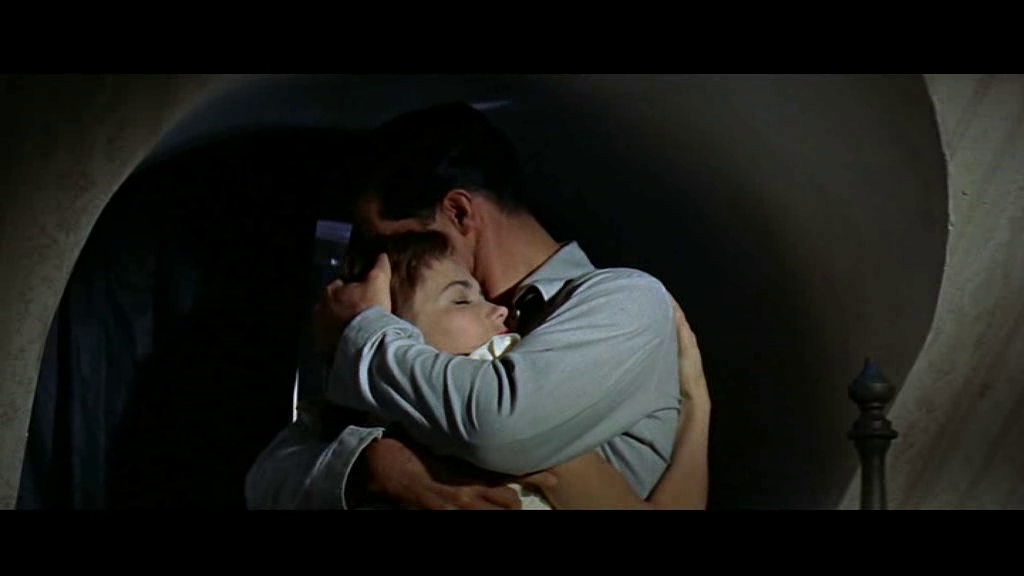
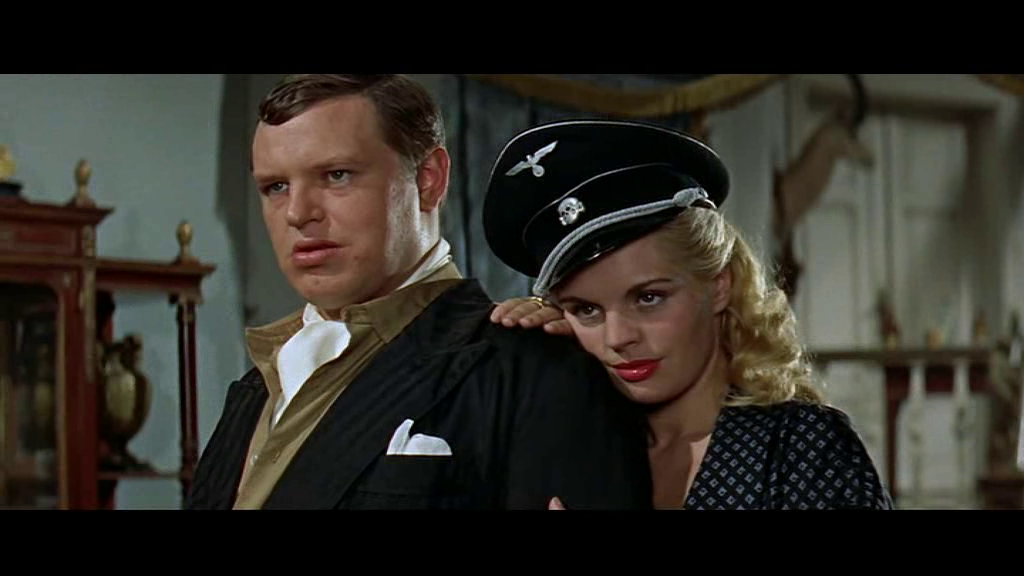
2 thoughts on “Time to Love and a Time to Die, A (1958)”
First viewing (12/9/20). Not must-see.
Earnest but too-often-stilted war drama / love story, with a standard (that is, unimaginative) Miklos Rozsa score. Gavin is a bit too wooden (he plays no subtext) – not that his dialogue helps him all that much; it hampers others as well. That said, the film has its moments – and the assessment’s comment re: the film containing a “bold look at highly varied German stances during WWII” is noted.
I almost commented on how the lead actors’ performances aren’t particularly noteworthy — and then, I guess, didn’t consider it noteworthy enough to make note of that. 😉
All to say, I’m not surprised these two didn’t have bigger careers (though they’re fine enough here).